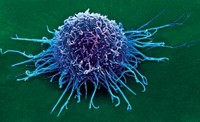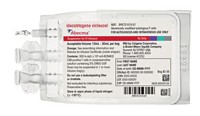Advertisement
Grab your lab coat. Let's get started
Welcome!
Welcome!
Create an account below to get 6 C&EN articles per month, receive newsletters and more - all free.
It seems this is your first time logging in online. Please enter the following information to continue.
As an ACS member you automatically get access to this site. All we need is few more details to create your reading experience.
Not you? Sign in with a different account.
Not you? Sign in with a different account.
ERROR 1
ERROR 1
ERROR 2
ERROR 2
ERROR 2
ERROR 2
ERROR 2
Password and Confirm password must match.
If you have an ACS member number, please enter it here so we can link this account to your membership. (optional)
ERROR 2
ACS values your privacy. By submitting your information, you are gaining access to C&EN and subscribing to our weekly newsletter. We use the information you provide to make your reading experience better, and we will never sell your data to third party members.
Investment
AbbVie invests in switchable CAR-T therapies for cancer
The drug company is partnering with Calibr to develop universal CAR T-cells directed to different tumors via antibody switches
by Ryan Cross
June 25, 2018

AbbVie is teaming up with the California Institute for Biomedical Research (Calibr), a division of Scripps Research Institute, to design and develop a new generation of switchable chimeric antigen receptor T-cell (CAR-T) therapies for cancer. The partnership demonstrates AbbVie’s excitement about new, controllable versions of cell therapy that are just now beginning to move from the lab bench to clinical studies.
Investments in cell therapies have gained steam since the first two CAR-T medicines were approved by the U.S. Food & Drug Administration last fall. Sold by Novartis and Gilead Sciences, they use a cancer patient’s own T cells, a type of immune cell, to attack cancer.
Making the CAR-T therapies requires removing T cells from an individual’s body, genetically engineering them to produce a synthetic protein called a chimeric antigen receptor and reinfusing them into the patient’s bloodstream. The CAR then detects a particular signal, or antigen, on cancer cells, and destroys them.
Currently, scientists must engineer a new CAR protein for every new cancer antigen that scientists want to target. Researchers at Calibr, led by Director of Protein Sciences Travis Young, have devised a new system that could use the same CAR T-cell therapy to target many different tumors. The trick is adding adapter molecules, also known as antibody switches, which are proteins that bind the same CAR at one end but bind different cancer antigens at the opposite end.
“Here the cells are the hardware and the switches are the software,” Young explains. “We can use the switches to program the cells to go wherever they are needed.”
And since antibody engineering is a routine science compared to the nascent field of CAR protein engineering, Young reasons that his approach will allow Calibr scientists to quickly develop CAR-T therapies targeting many types of cancers including solid tumors, which have been much tougher to eradicate with CAR-Ts than blood cancers.

In the partnership with AbbVie, Calibr will receive an up-front payment and will grant AbbVie exclusive access to its switchable CAR-T system for up to four years. AbbVie has the option to acquire an exclusive license for the system during that time. Calibr will also develop multiple switchable CAR-Ts directed at several solid-tumor antigens picked by AbbVie. The duo isn’t disclosing financial details about the partnership, but Calibr Chief Operating Officer Matt Tremblay says, “This is the biggest deal that we’ve done by far.”
Both approved CAR-T therapies, Kymriah and Yescarta, target an antigen called CD19, found on B cells in rare blood cancers. The therapy eliminates all B cells, and thus all traces of cancer, in some patients. But when cancer cells mutate and stop producing CD19, CAR T cells can no longer spot them. Doctors have determined that loss of the CD19 antigen causes some people’s cancers to relapse.
Young thinks his switchable CAR-T system can offer a way around this problem. If a person’s cancer relapses while they are getting the CD19 switch, doctors can transition to using a switch for another cancer antigen, such as CD20 or CD22, without having to make or infuse new CAR T cells.
Advertisement
As part of the AbbVie partnership, Calibr plans to launch a clinical trial testing the CD19-directed antibody switch in people with lymphoma next year. If successful, future trials could add switches targeting additional antigens. AbbVie has the option to acquire this program as well.




Join the conversation
Contact the reporter
Submit a Letter to the Editor for publication
Engage with us on Twitter